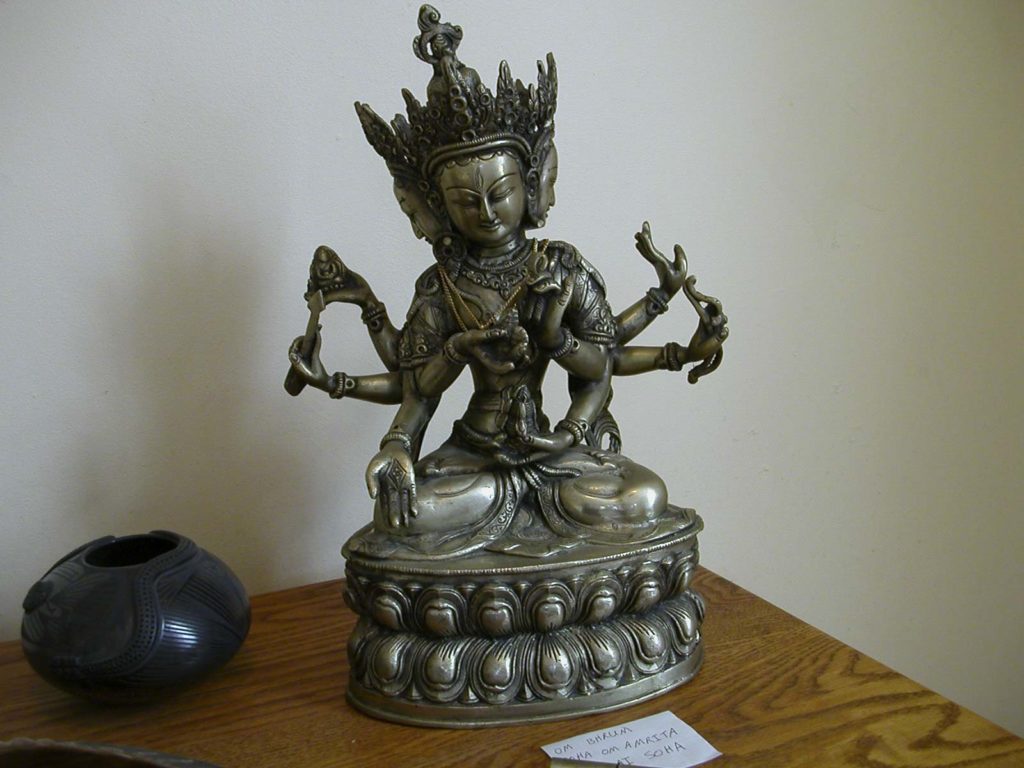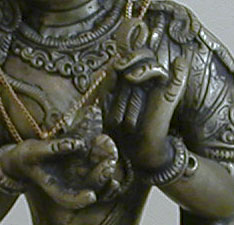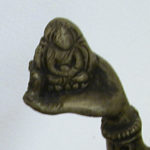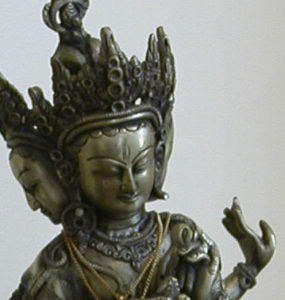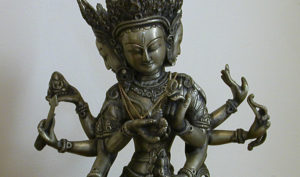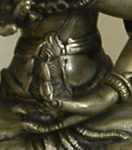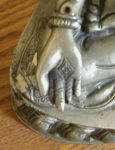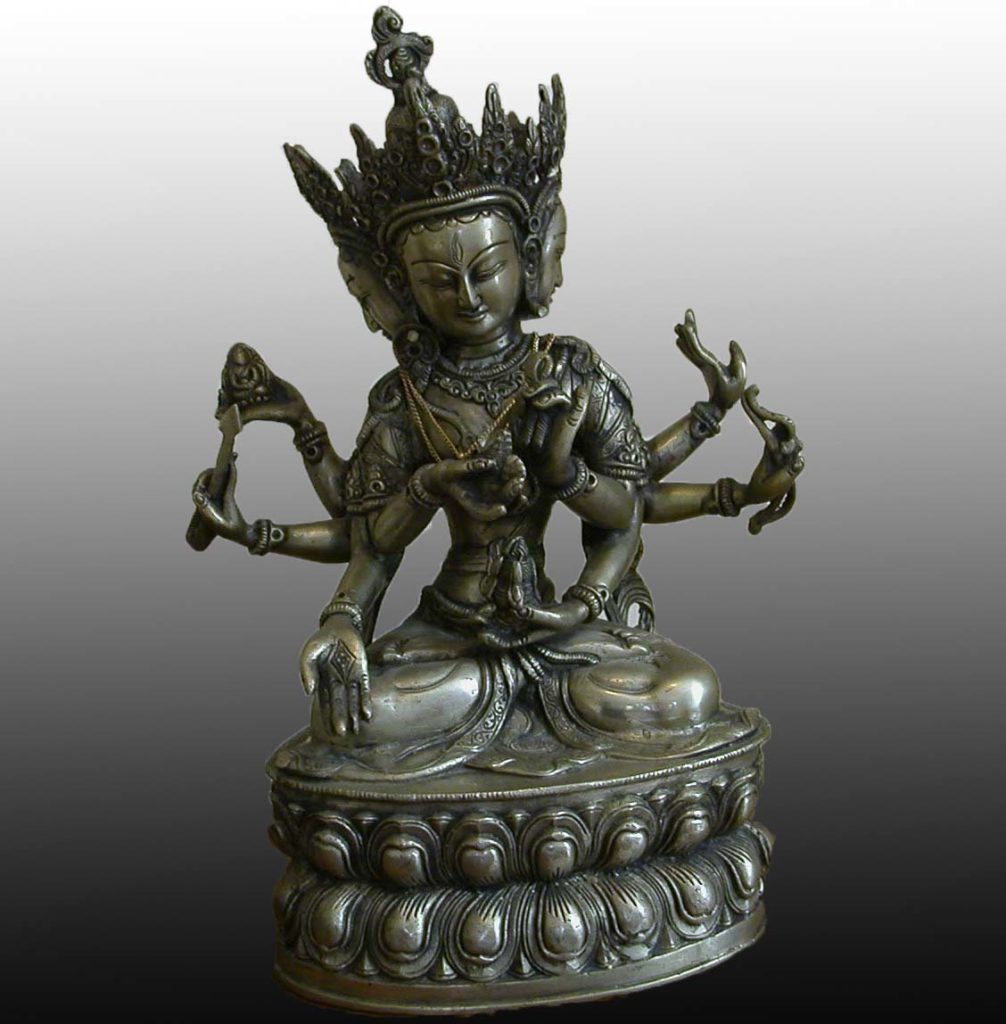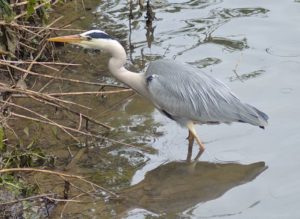
Then said Gangleri: “Which are the Asynjur?” Harr said: “Frigg is the foremost: she has that estate which is called Fensalir, and it is most glorious.”
— The Prose Edda, Snorri Sturluson, translated Arthur Gilchrist Brodeur.
Deities tend to become conflated over time, particularly female deities. When a major goddess enters the historical record in an obscure manner, the situation becomes more pronounced. Such is the case with Frigga, possibly at one time the most widely worshipped of the Germanic gods. Often confused with the beautiful and loving Frejya, Frigga is very much a goddess of her own realm.
The term “Asynjur” mentioned above means “goddess” in this case, though it can refer specifically to the branch of Germanic deities known as the Aesir. Marija Gimbutas classifies the two branches as a conjoining of Old European and invading Indo-European pantheons: “The Vanir represent the indigenous, Old European deities, fertile and life giving. In contrast, the Aesir embody the Indo-European warrior deities of a patriarchal people.”(1) I view this assessment, and Frigga’s place in it, not as false but as overly facile. The Vanir was undoubtedly drawn into the Aesir, with the Aesir All-Father Odin the dominant deity of the new pantheon, but the more populated Aesir had probably absorbed other pantheons at an earlier time. I believe Frigga was a central goddess of a matriarchal culture who was absorbed into Odin’s cult by “marriage,” a time-honored way of combining pantheons. Frigga’s marriage to the head of the patriarchal pantheon signals her importance. Her cult seems never to have been entirely subdued, because she retains her own sphere and is more than a match for Odin. In two stories she outwits the All-Father.
While Germanic deities have their own personalities, their individuation is expressed less with symbols and functions, which often overlap, than with territory. Frigga’s place is the slow-moving, marshy river and her glorious estate of Fensalir is an island within the freshwater marshland. The Grey Heron dominates this type of landscape, and Frigga is said to wear a crown of heron feathers. She has also been mentioned as owning hawks, which might be a conflation with Frejya, but could allude to another bird of this landscape, the osprey. I think of her as the great fish eater. She harvests souls swimming in the water of life and so rules over fate.
Frigga’s tree is the European White Birch, which grows well in wet soil along rivers. No doubt her house — or nest — is birch. (For more on this association see my post Frigga and the Birch.) She is the goddess of spinning, with the stars her distaff, which makes her the goddess of the year. Frigga’s status as sun goddess is revealed by her function as goddess of time and her association with gold. If twelve other goddesses mentioned in the Prose Edda are Frigga’s handmaidens, as Diana Paxson maintains(2), this further support the conjecture that she is a sun goddess.
As mother goddess Frigga rules that other fishy place, a woman’s vulva. The sexual connotations of the word “frigg” are derived from her name. (For those who don’t know what frigging is, I explain it here in this video.) Christianity has successfully divided the mother from the sexual being in our minds, thus encouraging the distinction of Frigga as mother goddess as opposed to Frejya as love goddess, yet earlier Pagans knew no such separation.
Frigga is described in the literature as the goddess who knows the future but seldom speaks of it. Herons also walk silently in the still waters, typically quiet except in the rookery. Frigga gives the child her destiny at birth. Her mastery of divination can be traced to her death-goddess huntress aspect or to her spindle which commands time. Birch bark as writing medium ties Frigga to the runes and their association with divination and spells.
While Frejya and Odin divide the heroic who die in battle between them, those good souls who lead a humbler life go to Fensalir after death. This gentle, loving goddess did not rise to prominence in a warrior culture.
I associate Frigga with the smell of fishy water, which I love, and quiet ponds teeming with dragonflies, frogs, and vegetation. She is the stately heron stalking the water’s edge. She is also the beautiful composed matron, the mistress of a rich but comfortable house. She is wise beyond measure, and though we hang on her words she listens more than she speaks.
The fate of all does Frigg know well,
Though herself she says it not
— The Poetic Edda, translated by Henry Addams Bellows
Notes
1. Marija Gimbutas, The Living Goddesses (Berkeley, CA: University of California Press, 1999), p. 191.
2. Diana L. Paxson, “Beloved: On Frigg and Her Handmaidens,” at Hrafnar: Twenty Years of Re-Inventing Heathenry


